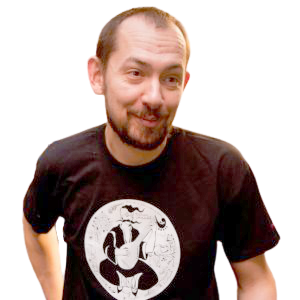Last week, Russian authorities yet again said someone owed them something. This time, the Russian Foreign Ministry demands to give the Russian language the official status at a legislative level in all countries of the former Soviet Union. This statement by Russian officials actually evidences the fact that the new generation in Ukraine and other countries is not fluent in Russian so Moscow believes it’s in urgent need to do something about.
Russia loves talking about "soft power", saying it’s common practice for the advanced powers to promote their language around the planet. For this example, German Goethe Institute, the British Council, the Spanish Cervantes Institute, the Chinese Confucius Institute have all been operating to this end. In Russia, the Russian World Foundation was established in 2007.
A little later, former Russian Ambassador to NATO Dmitry Rogozin, who was also spotted at the Maidan during the 2004 Orange Revolution sporting an orange scarf and who is now overseeing the entire Russian defense industry, has very clearly articulated the idea the Russian elite sees behind language expansion: "Language means power. Protection of our native language and its expansion beyond our borders is the basis for the restoration of our global political influence," Rogozin wrote in his book titled "Hawks of Peace" (2010, pp. 149-150).
Ukrainian Russian-speakers are shooting at the Russian occupiers just as the Ukrainian-speakers are
March 1, 2014 Council of the Federation granted Vladimir Putin’s appeal on deploying the Russian army in Ukraine because of "a threat to life" of Russian citizens and their compatriots. In fact, almost the entire population of Ukraine can be attributed to this abstract category of "compatriots" under the Russian law… Then there came the annexation of Crimea and all that delirious raving about “Novorossiya”, which resulted in bitter hostilities in Ukrainian Donbas that are still ongoing. To justify war, the Kremlin has always exploited a simple idea, "protecting the Russian-speakers".
Russian authorities are so blown away with their own "greatness" that they’ve actually turned many Russian-speaking communities around the world into a kind of a fifth column, a threat to the countries where they reside. Today Russia’s top officials threaten with war almost all of their neighboring states, not concealing the fact that this "protection of compatriots" can become a pretext for invasion. For example, Prime Minister Dmitry Medvedev said that Russia was ready to defend its "compatriots abroad from harassment by local authorities" as it had happened in South Ossetia and Crimea. From the perspective of common sense and international law, these regions are now deemed occupied, and there are Russian military bases there. In Crimea, everything that is Ukrainian is being destroyed and people who disagree with the seizure of the peninsula are being declared terrorists, saboteurs, and spies.
More recently, Russian President Vladimir Putin for the first time openly declared that Russia had been “forced to defend a Russian-speaking population” in Donbas and Crimea.
And here comes the most important question. Where are the limits? How far can Moscow go under this false pretext? The history of the past two years has shown that if the Ukrainians could be split somehow into any hostile groups, they would surely not be divided into the Russian- and Ukrainian-speakers. Ukrainian Russian-speakers are shooting at the Russian occupiers just as the Ukrainian-speakers are. At the same time, there are many examples when those who know the national anthem by heart and excel in Ukrainian keep stealing from their Homeland amid war. Meanwhile, the Kremlin keeps on pretending that they don’t understand how a definition of a “Russian-speaker” is absolutely not the same as "pro-Russian". After all, has anyone stopped speaking Russian in Kyiv, Lviv, Uzhgorod, or Kharkiv?
Russian language has long been closely associated in Ukraine with the authors of the phrase "we’ve been shelling Ukraine all night" rather than with Dostoevsky or Chekhov
Prior to the Russian aggression, the language issue has always been exploited by Ukrainian politicians in their struggle for power, which was leading to a division of society. In this list, there were also certain historical issues, as well as the topic of joining/not joining NATO. Curiously, after the seizure of Crimea, for example, former Ukrainian MP Vadym Kolesnichenko, who had been promoting the law on regional languages, was simply thrown out of politics by his old masters. But his cause lives on as the Kremlin continues to operate such terms as "the southeast of Ukraine", implying that it was during the time the "Kolesnichenko law" was in force that the Russian language was granted a regional status in several southern and eastern regions of Ukraine. However, life has shown that, following the regional status for the Russian language, Russian Buk missile launchers might as well park in your backyard, as well as Russian artillery, Russian tanks, and Russian troops (although some of them have little resemblance to Russians whatsoever).
In Ukraine most people are fluent in both Ukrainian and Russian. But it turns out that speaking Russian can actually be dangerous as it is for the killers from the neighboring state as a red rag for a bull. It would be much better if speaking Russian was a guarantee that one was not shot by the Russian military and other adepts of the "Russian World" but unfortunately, it is exactly the opposite: the use of the Russian language automatically makes you a target for Russian soldiers.
Perhaps someone in Moscow should understand that, whatever plot the Kremlin has drafted regarding the Russian-speakers in Ukraine, Russian language has long been closely associated in Ukraine with the authors of the phrase "we’ve been shelling Ukraine all night" rather than with Dostoevsky or Chekhov.
Roman Tsymbaliuk, Moscow


